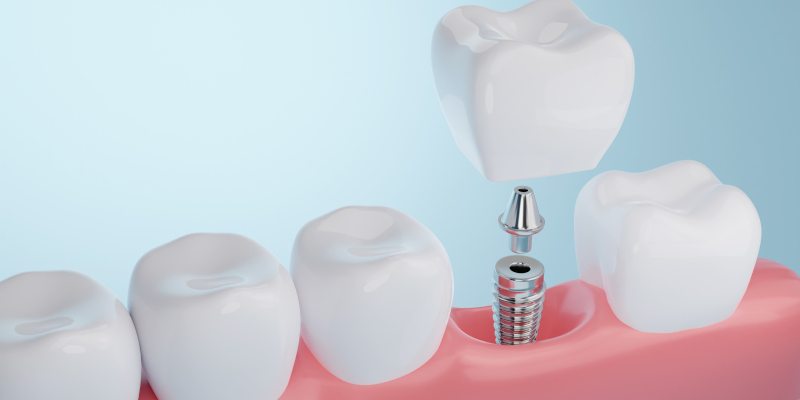Dental implants are ideal for people who are missing teeth and want a permanent solution that looks and feels natural once it has healed. If you’re considering talking with your dentist about dental implants, here are a few things to note.


• The process takes time. Placing dental implants requires multiple steps, including oral surgery with significant healing time, so the entire process usually takes many months to complete. Before the first procedure, and possibly between stages, you may have to consult with various specialists, such as an oral or maxillofacial surgeon, periodontist (who specializes in gums and oral structure bones), prosthodontist (who specializes in creating and fitting prosthetic teeth), or ENT (ear, nose, and throat) specialist. Before your implants can be placed, you will need a complete oral exam and an extensive discussion with your dentist about your medical history and desires for the end result. Your dentist will work with you to create a treatment plan that accounts for your current oral health, how many teeth you will have replaced, and recovery time between procedures.
• Not everyone can get dental implants. Dental implants need a solid foundation to sit in, so they are not an option for people who don’t have the adequate bone structure to support an implant. In some cases, a bone graft may be an option, but this must be determined on a case-by-case basis and is not possible for every patient. Dental implants can only be placed if your jaw is finished growing, so they are not an option for children or teens. People who smoke or use tobacco products should also avoid dental implants, since the chemicals found in tobacco products can slow or impede your mouth’s ability to heal. Dentists may also hesitate to recommend dental implants for a patient over the age of 85, since there is a higher associated risk with older patients. A less-invasive option may be a better option for an older patient’s overall health.
• There are different kinds of dental implants available. Dental implants can be fixed or removable. A fixed implant is permanently attached and cannot be removed for cleaning or repair. Removable implants consist of an artificial tooth surrounded by pink plastic that looks like your natural gums. This artificial tooth is mounted on a metal frame that is snapped into place on the abutment and can be removed for cleaning and repairs.



